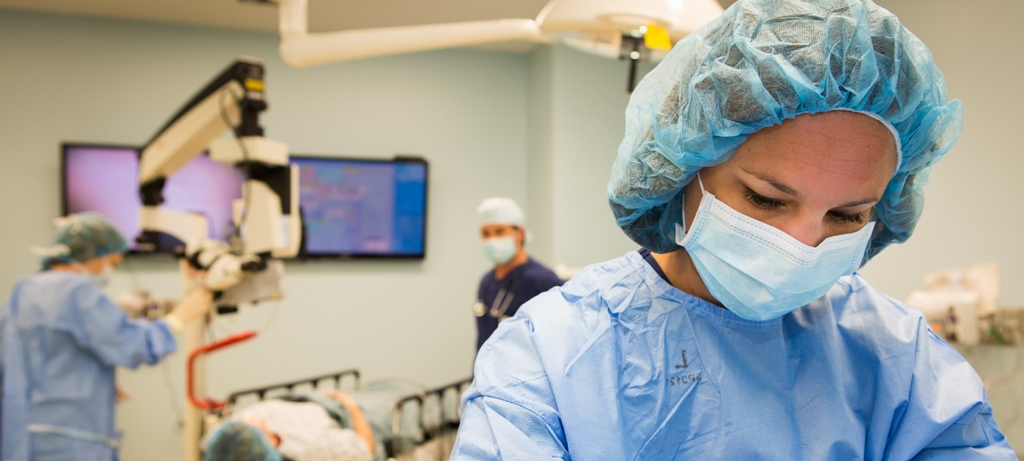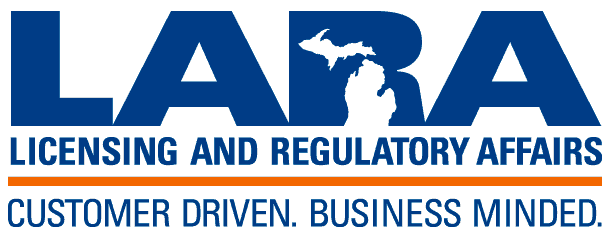Conviction Reporting Requirements for Licensed Health Care Professionals
Healthcare professionals routinely face administrative complaints from the Michigan Department of Licensing and Regulatory Affairs (“LARA”) for failing to self-report criminal convictions.

What Licensed Health Care Professionals Need to Know About Reporting Convictions under LARA
Doctors, nurses, and other healthcare professionals must report criminal convictions to the Michigan Department of Licensing and Regulatory Affairs (LARA). Failure to understand or know the conviction reporting requirements is not a defense. There is little room for error with LARA Conviction Reporting Requirements because the economic and professional consequences of failing to self-report a criminal conviction can be devastating.
Reporting to LARA Is Mandatory
The Michigan Public Health Code clearly states that a licensee must notify LARA of any criminal conviction within 30 days after the date of the conviction. What is a licensed healthcare professional? The following is a list of required reporters under Michigan law:
- Acupuncturist
- Allopathic Physician (MD)
- Athletic Trainer
- Audiologist
- Chiropractor
- Counselor
- Dentist, Hygienist, RDA
- Dietitian or Nutritionist
- Marriage & Family Therapist
- Massage Therapist
- Nurse (RN or LPN)
- Nursing Home Administrator
- Optometrist
- Osteopathic Physician (DO)
- Pharmacist
- Physical Therapist, PTA
- Physician’s Assistant
- Podiatrist
- Psychologist
- Respiratory Therapist
- Sanitarian
- Social Worker
- Speech/Language Pathologist
- Veterinarian Occupational Therapist, OTA
“Where do health care professionals file a notice of conviction?”
A Michigan licensed health professional must report a criminal conviction to the Department of Licensing and Regulatory Affairs. The licensee or their attorney must send the Report of Conviction to the following address or fax:
Department of Licensing and Regulatory Affairs
Bureau of Professional Licensing – Legal Affairs Division
Allegations Section
P.O. Box 30670
Lansing, MI 48909-8170
Fax: (517) 241-2389
Proof of a conviction sent the day before it is due, should be sent overnight mail to:
Department of Licensing and Regulatory Affairs
Bureau of Professional Licensing – Legal Affairs Division
Allegations Section
611 W. Ottawa St., 1st Floor
Lansing, MI 48933-1070
Lawyers often provide notice of the conviction to LARA in multiple ways because the consequence of failing to provide notice in a timely manner is severe. The healthcare professional should retain a copy of the correspondence and delivery confirmation to document compliance with the Public Health Code. If LARA alleges the healthcare professional failed to notify it of the conviction or that the licensee failed to comply with conviction reporting requirements, this documentation will be required.
“What do I file to notify LARA of a conviction?”
LARA does not require conviction notices on any particular form or in a specific format. However, LARA does require that the notice include certain information. Regulators can deem a failure to include a particular, necessary detail as a lack of proper notice. Under the Michigan Public Health Code, the licensee should include the following information in the report to comply with the LARA Conviction Reporting Requirements:
- Licensee’s Name and Date of Birth
- Date of Reporting
- Licensee’s License Number
- Telephone Contact Number(s) and Email Address
- Court Name and Case Number
- Name of Offense and Date of the Conviction
- Name of Police Agency Involved and Report Incident Number
- Offense Date
“Do I have to report a misdemeanor to LARA, or is reporting required only for felony convictions?”
LARA does not distinguish between felonies and misdemeanors, and a licensee must report all convictions, whether they occurred in Michigan or elsewhere. However, it is essential to remember that they must report only the conviction offense, not the original charge or any other offenses that were dropped or otherwise not included in the actual conviction.

“What is a criminal conviction according to LARA?”
For purposes of the Michigan Public Health Code, the term “conviction” means a judgment entered by a court upon a:
- plea of guilty, guilty but mentally ill, or nolo contendere, or
- upon a jury verdict or court finding that a defendant is guilty or guilty but mentally ill.
For reporting purposes, it is critical to only report the conviction offense(s) and not the originally charged offenses that might have been dropped as part of a plea agreement or by acquittal. There is no duty to report the original charge, and the licensee should not report this information.
“Should I notify LARA of the positive things I’ve done since the charge and conviction?”
There are situations where it may be appropriate for a licensee to draft a letter of apology and provide letters of recommendation. The letters can attest to the licensee’s good moral character and that the conviction offense is not rationally related to their ability to work in healthcare. For example, suppose a healthcare professional is convicted of possessing or using a controlled substance, such as cocaine or non-prescribed medication. In that case, it might be in their best interest to share with LARA that they’ve made successful efforts to rehabilitate, such as completing a therapy or educational program.
Rehabilitative efforts demonstrate to LARA that the licensee has taken action to ensure the behavior resulting in the conviction will not be repeated. Additionally, the licensee must show that it is in Michigan’s best interests that they continue to be licensed and practice without license sanctions. A skilled attorney can take these additional steps and put the individual in the best possible light. If the attorney can persuasively prove the licensee can safely and skillfully continue to practice their profession, LARA might not take unnecessarily strict licensing action.

When to Report a Misdemeanor or Felony Conviction to LARA
The licensed healthcare professional must report the conviction within 30 days, according to LARA Conviction Reporting Requirements. The “conviction date” is the date of the plea or, if there was a trial, the day of the verdict. The conviction date is not the sentencing date. The health care professional must notify LARA before sentencing if the sentencing is scheduled for later than 30 days following the conviction. No “substantial compliance” exception exists for reporting a criminal conviction under the Public Health Code. LARA will file a complaint if the notice is one day late or doesn’t include the required information.
“What if I failed to report a conviction within 30 days?”
In such situations, the licensee must decide whether to self-report the criminal conviction before renewing their license. The healthcare professional might be reluctant to report the conviction because they won’t want a complaint for failing to report the conviction within the required time, or LARA might learn of a conviction that could otherwise remain undiscovered. In most cases, it is wise to self-report the conviction as soon as possible to give the impression that the licensee attempted to comply with the Public Health Code.
Although late, self-reporting will mitigate any subsequent licensing sanctions LARA might impose if it discovers the conviction. Voluntarily reporting the conviction allows the licensee to say “no” when asked if there are any unreported criminal convictions since the licensee’s last renewal.
Under the LARA Conviction Reporting Requirements, a licensee might not have to report a conviction before July 1, 2014. It is best to consult with an expert before reporting any unreported conviction before that date.
“Is reporting to Michigan sufficient if I’m licensed in several states?”
Reporting a conviction to LARA will likely not constitute sufficient notice for other states where the health care professional is licensed. In fact, some other jurisdictions require notice of charges, not just convictions. The requirements for self-reporting are not limited to only active licenses. Therefore, licensees with inactive or expired licenses in other states must still report their convictions to avoid violating the health code of a given jurisdiction.

“What can happen if I failed to self-report a conviction to LARA?”
Failure to self-report a criminal conviction is a violation of the Public Health Code. LARA has two primary methods for discovering unreported criminal convictions. First, court clerks must notify LARA of a licensed healthcare professional’s felony or misdemeanor conviction involving the illegal delivery, possession, or use of alcohol or a controlled substance (including practicing medicine under the influence of alcohol or drugs). Second, many people unwittingly notify LARA of their violation when they respond affirmatively to criminal conviction questions on their license renewals without realizing they are admitting to violations of the Public Health Code because they failed to notify LARA within 30 days of such convictions.
Failure to self-report will result in the filing of an administrative complaint alleging a violation of the licensee’s statutory duty to self-report their criminal conviction, as well as any allegations stemming from the underlying criminal conviction, such as negligence, incompetence, substance use disorder, and a lack of good moral character. Specific license sanctions applicable to a violation of a licensee’s obligation to self-report a criminal conviction include reprimand, denial of licensure, limitation of licensure, probation, and a fine that can be thousands of dollars.
In addition to the potential licensing sanctions, a healthcare professional can also suffer indirect or collateral consequences for failure to report a conviction to LARA, such as:
- mandatory notification of licensing boards in other states,
- suspension or loss of hospital privileges,
- loss of enrollment in state professional associations, such as the Michigan State Medical Society, the Health Care Association of Michigan, and the Michigan Healthcare Professionals,
- loss of partaking in Preferred Provider Organizations (PPOs),
- loss of enrollment or participation with third-party payors,
- loss of DEA registration,
- loss of professional liability insurance (malpractice) coverage
- exclusion from participation with Medicare, Medicaid, and other federal and state government programs, and
- loss of board certification
“Do I have to report a conviction to Medicare, my employer, and the associations I’ve joined?”
Licensed health care professionals might be required to report an “adverse legal action” within 30 days to Medicare contractors, employers (such as hospitals), professional associations, and more. For example, physicians and other health practitioners, such as dentists, podiatrists, and social workers, must report any adverse legal action to their Medicare contractor. The convictions included within the definition of “adverse legal action” include federal and state felonies such as assault, white-collar crimes, fraud offenses involving Medicare, and felony convictions resulting in exclusion from federal health care programs.
Hospitals, medical companies, offices, partnerships, associations, and boards might have rules or codes of conduct requiring notification of criminal charges and convictions. A licensee must carefully review any professional associations, memberships, employment contracts, etc., to determine whether reporting requirements exist for those organizations. Failure to report the conviction to an outside entity or association would not be a separate violation of LARA Conviction Reporting Requirements.
Pre-Charge Investigation and Consultation for Doctors, Nurses, and Other Health Care Professionals
An allegation of criminal activity can permanently impact a healthcare professional’s career. A charge or conviction would have an even more significant impact. The Defense Team with LEWIS & DICKSTEIN, P.L.L.C. has worked with doctors, nurses, PAs, dentists, and many other professionals on a proactive, pre-charge basis. By proactively intervening in a federal or state criminal investigation, we can often provide critical information or documents that persuade a prosecutor to decline to charge a case. If charges are unavoidable, we can negotiate for:
- reduced charges,
- pre-arranged plea or sentence agreement,
- a transfer to a more favorable jurisdiction,
- transference of a case from federal to state jurisdiction, and more.
Whatever you do, please do not wait to “see what happens.” Be the master of your own situation through forward-looking action.
Immigration Consequences
If a healthcare professional is not a citizen of the United States, they must also consider potential immigration consequences. Most felony offenses and many misdemeanors are considered Crimes of Moral Turpitude (CMT) or aggravated felonies. They can trigger deportation, exclusion, or the elimination of the chances of becoming a United States citizen. Do not take chances with the lowest bidder when the stakes are so high.

Criminal Defense Attorneys for Licensed Health Care Professionals
In certain circumstances, licensed healthcare professionals facing criminal charges require the assistance of an experienced healthcare defense attorney to comply with the plethora of self-reporting requirements following not only a criminal conviction but also a criminal charge. Simply put, the stakes are too high to neglect to investigate all potential entities requiring self-reporting of a charge or conviction. A skilled criminal defense attorney might be able to get felony or misdemeanor charges dismissed or negotiate for reduced charges with a reduced impact on professional licensing. Please take the time to call us for a free consultation. We will discuss your situation, answer your questions, and work with you to develop a winning strategy.
Call us today at (248) 263-6800 for a free consultation or complete an online Request for Assistance Form. We will contact you promptly and find a way to help you.















